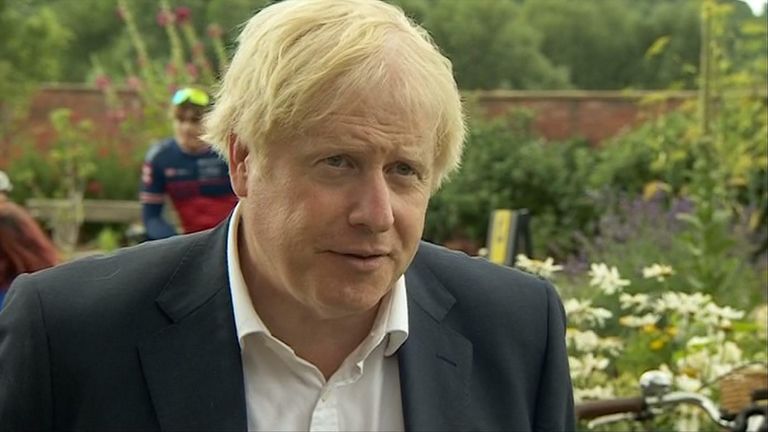People with coronavirus symptoms in England will be told to self-isolate for 10 days instead of seven, according to reports.
Health Secretary Matt Hancock is expected to announce the increase in isolation period on Thursday, but it is not clear if Wales, Scotland and Northern Ireland will adopt the same policy.
Those who have come into close contact with someone who has tested positive for COVID-19 will still have to stay at home for the same amount of time – 14 days.
Up until now, if you had a new and continuous cough, fever or change or loss in taste or smell, you only had to isolate for a week.
The change comes as new research suggests one in every 14 Britons has already been infected with the virus.
The Oxford University study of more than 20,000 people indicated that 7.1% of the population have coronavirus antibodies, which appear in someone’s blood after they are infected.
While ministers are increasing isolation times for people with symptoms, the Daily Telegraph reports they are trying to reduce the 14-day quarantine for travellers coming back to the UK from “high risk” countries.
On Tuesday the prime minister did not rule out cutting returning travellers’ self-quarantine to 10 days.
He said: “We are always looking at ways in which we can mitigate the impact of the quarantine, try to help people, try to make sure that the science is working to help travellers and holidaymakers.”
But after he suddenly imposed a 14-day quarantine for people flying back from Spain this week, Mr Johnson added: “At the moment you have got to stick with the guidance that we are giving, we have given the guidance now about Spain and about some other places around the world.”
The Foreign and Commonwealth Office advised against all non-essential travel to Spain, including the Balearic and Canary Islands, after it suffered an increase in cases.
:: Listen to the Daily podcast on Apple Podcasts, Google Podcasts, Spotify, Spreaker
The decision has sparked outrage among Britons already on holiday there and across the country’s tourism industry.
But the PM has cautioned there are already signs of a potential second wave in Europe, with Transport Secretary Grant Shapps, who is beginning his fortnight at home after returning from Spain, adding: “We had to act when we did.”
The move to increase symptomatic people’s self-isolation could be down to health leaders’ concerns of a second spike heading for the UK.
NHS Confederation chief executive Niall Dickson said another wave, along with “exhausted staff” while the health service tries to rebuild services, could prove “challenging”.
He told the All-Party Parliamentary Group (APPG) on coronavirus: “I would say in relation to the second spike issue or something coming, the levels of concern among our members – the people who are leading NHS trusts, who are leading in primary care and all levels in the systems – is very high.
“There’s real concern about winter and the compounding factors there, but also about an earlier spike.”


